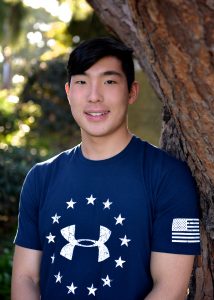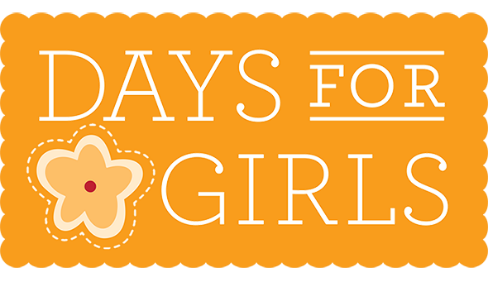
A non-profit, international organization, Days for Girls, provides young women in developing countries with sanitation solutions for menstruation. When on their period, these girls and women do not have access to disposable tampons or pads, preventing them from going to school or work. This organization’s goal is to allow girls to continue their lives, without being hindered by their menstrual cycles.
Chapters are growing on a global scale, several of which are located in San Diego. One group in La Mesa attracted many experienced seamstresses—and one high school senior. Outstanding student at Coronado High School, Nathaniel Kim learned about this endeavor to give girls back their “days” and wanted to take a part in it. He started working with his church group in La Mesa and extended his involvement by starting a club on campus. The club would help prepare fabrics and dye cloth to later be sewn and put together by the seamstresses in La Mesa. Last year, Days for Girls Coronado won club of the year for their global service in having made one hundred sanitation pads in less than eight months.
Wanting to know more about his personal experience in the club, the Coronado Times sat down with President Nathaniel Kim for an interview:
How did you come to learn about Days for Girls?
“So it all started the summer of my sophomore year. This lady at my church named Jan Burt asked if I could come and help her out with a club. I didn’t really know what I was getting into. But I went to the first meeting and she told me cut out these pads (not knowing what it was for). I was doing that for a couple of weeks, and then I started getting interested on what it was for exactly.
“She then had a recruitment meeting to go over the guidelines and the whole purpose of the organization. From there, I realized that the lack of female sanitation is actually a really big issue. After that, I started to find new ways to get involved, and that’s how I started to get Coronado involved.”
What were your initial thoughts about this issue? Why did it motivate you to start a club on campus?
“After learning about this issue, I thought it was very unfair because in more developed countries, we’re all so fortunate to have these sanitation products readily available. But we fail to realize that in developing countries, these products are not at their convenience. Therefore, it’s very hard for them to get out of that social stigma that exists in some countries, as menstrual cycles are not something people talk about.
“The fact that the girls in developing countries can’t go to school or go to work because of their periods is unfair. Everyone deserves an education, and that’s the whole purpose of the club. It’s to give them back their ‘days.'”
Why did you want to spread awareness to your school community in Coronado?
“I thought everyone knew about this when I first learned about it. Then I realized that it wasn’t the case. When I first tried to get people involved in this club on campus, they didn’t know anything about it. They were shocked as I was. That’s why I wanted to get people involved in this community to spread awareness on the issue.”
With respect to the international organization, what is the purpose of this club on campus?
“So obviously, we can’t go to these countries every day. The main reason why I started it here was to just spread the word and get people to realize how fortunate we are and to show support to those who are less fortunate.
“We also help seamstresses in the La Mesa chapter, who sew the pads and put together the kits. Every Wednesday before school, our club gets together to prepare fabrics, dye underwear, etc. Last year, we prepared enough fabric to make a hundred pads. Even though that isn’t enough to give every girl back her ‘days,’ it’s still something. So we try to help as much as we can.”
While working in this organization, what have you learned about the hardships that girls in developing countries face?
Girls in developing countries lose a third of their school year or their work year. They are barred from school or work because of menstruation. That’s a lot of time. Imagine a third of the year being taken away because you were stuck in a tent, isolated from the rest of your community. You wouldn’t be as productive. The gender disparity would be even larger. This organization is to get everyone the education they deserve and to lessen this gender disparity.
Many people have turned the other away because they see a boy running a club with “girls” in the name. What would you say to these people so that they understand what Days for Girls is really about?
Well, first of all, that shouldn’t happen because this isn’t something only girls should be fighting for. Guys should be fighting for it, too. We’re all the same entity. We have to work together to thrive. If we really want to make a difference, everyone needs to get involved. People shouldn’t walk away just because a guy is running a club that has “girls” in the name. It’s for everyone.
How can people get involved in Days for Girls?
All we really want to do is spread awareness. By simply talking to us and hearing what we have to say, people are contributing to the cause.
For more information on how to get involved, visit the Days for Girls International website.
–
Related: Days for Girls Wins Club of the Year for Global Service




